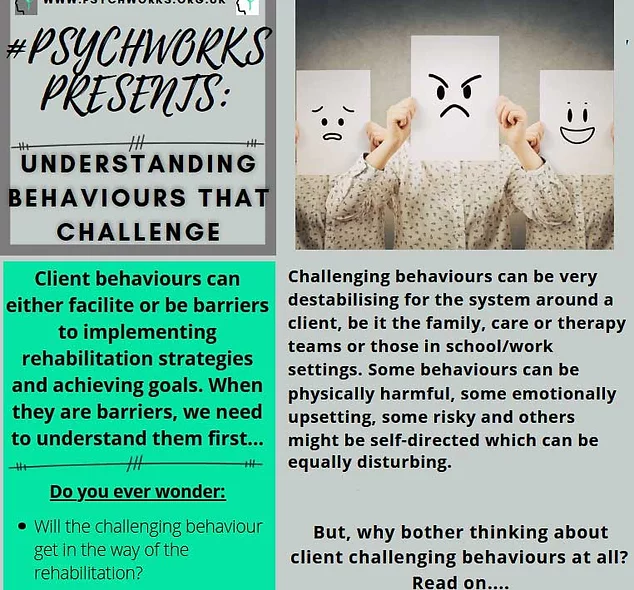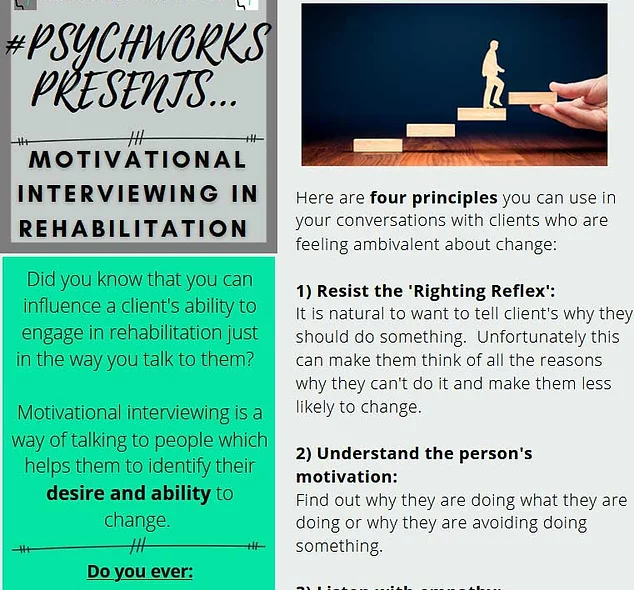Client behaviours can either facilite or be barriers to implementing rehabilitation strategies and achieving goals. When they are barriers, we need to understand them first…
Do you ever wonder:
Will the challenging behaviour get in the way of the rehabilitation?
Why does my client do that?
How do I support a family where the client behaviours are challegning?
How long can the care team put up with this behaviour?
What can I do about these risky behaviours?
I worry about the behaviours displayed…
Challenging behaviours can be very destabilising for the system around a client, be it the family, care or therapy teams or those in school/work settings. Some behaviours can be physically harmful, some emotionally upsetting, some risky and others might be self-directed which can be equally disturbing.
In Personal Injury work, challenging behaviours can be very prevalent, especially in Brain Injury clients. They present at different times and can be a problem for children and adult clients.
At PsychWorks Associates, we want to share our psychological understanding of behaviours to help you be more aware of what challegning behaviours can look like, why they might happen, and when to seek further help.
But, why bother thinking about client challenging behaviours at all?
Read on….
First, here’s some science about why thinking about challenging behaviours is worthwhile:
Challenging behaviours are a method that clients use to communicate.
What they are trying to communicate is an unmet need.
It can often be difficult to determine what the unmet need is.
Factors that make it even harder to determine unmet needs include: cognitive abilities, communication difficulties, environmental changes, emotional states and inconsistent care.
Once the need is met, the behaviours can be significantly minimised.
There are lots of different techniques to support behaviour, but a thorough specialist assessment will determine the best fit approach.
Challenging behaviours, when not addressed quickly or adequately, can become quite ingrained and entrenched, making them difficult to manage and move on from .
OK, but how do you know if you or your client/family needs some help with challenging behaviour?
Rehabilitation is not progressing.
Behaviours are escalating either in severity and/or frequency.
Care team is concerned about working with the client.
Team morale is low.
Care team turnover is high.
Carer supervision is constantly picking up overwhelm.
Regardless of strategies used, client appears angry or irritable.
Behaviours are risky or disturbing.
Family minimise the impact of the behaviour.
Family is seemingly hopeless about change being possible.
There is no underlying health or pain needs that you know of.




